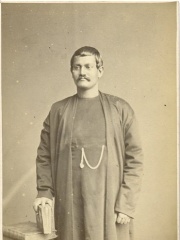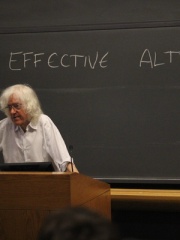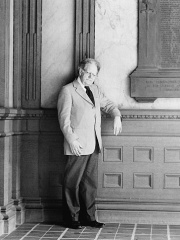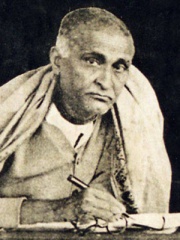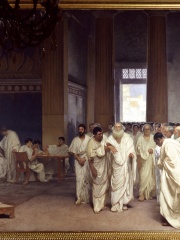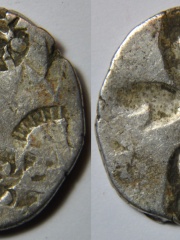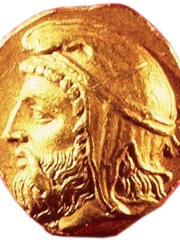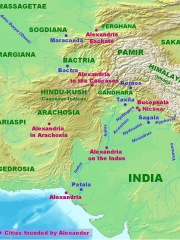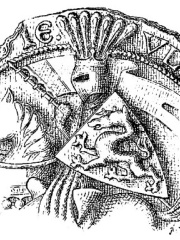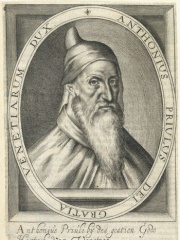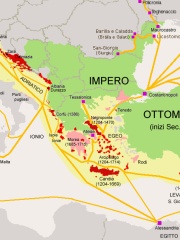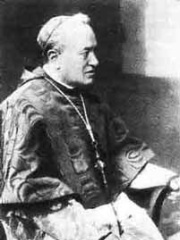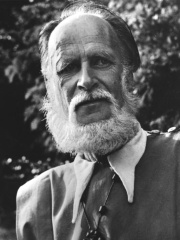Philosoph
Monimus
400 BC - heute
DE.WIKIPEDIA PAGE VIEWS (PV)
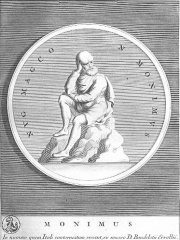
 Monimus
Monimus
Seine Biografie ist in 16 verschiedenen Sprachen auf Wikipedia verfügbar (gestiegen von 15 im Jahr 2024). Monimus ist der 960th beliebteste Philosoph (gesunken vom 881st im Jahr 2024), die 2,910th beliebteste Biografie aus Italien (gesunken vom 2,645th im Jahr 2019) und der 67th beliebteste aus Italien Philosoph.
Memorability Metrics
Page views of Monimus by language
Among Philosophs
Among philosophs, Monimus ranks 960 out of 1,267. Before him are Keshub Chandra Sen, Lars Gustafsson, Sandra Harding, Ramananda, Derek Parfit, and Nemesius. After him are Jacques-André Naigeon, David Lewis, Wendy Brown, Northrop Frye, Rüdiger Safranski, and Bhaktisiddhanta Sarasvati.
Most Popular Philosophs in Wikipedia
Go to all RankingsKeshub Chandra Sen
1838 - 1884
HPI: 59.58
Rank: 954
Lars Gustafsson
1936 - 2016
HPI: 59.56
Rank: 955
Sandra Harding
1935 - 2025
HPI: 59.55
Rank: 956
Ramananda
1400 - Present
HPI: 59.54
Rank: 957
Derek Parfit
1942 - 2017
HPI: 59.52
Rank: 958
Nemesius
400 - 500
HPI: 59.51
Rank: 959
Monimus
400 BC - Present
HPI: 59.50
Rank: 960
Jacques-André Naigeon
1738 - 1810
HPI: 59.50
Rank: 961
David Lewis
1941 - 2001
HPI: 59.49
Rank: 962
Wendy Brown
1955 - Present
HPI: 59.49
Rank: 963
Northrop Frye
1912 - 1991
HPI: 59.49
Rank: 964
Rüdiger Safranski
1945 - Present
HPI: 59.43
Rank: 965
Bhaktisiddhanta Sarasvati
1874 - 1937
HPI: 59.42
Rank: 966
Contemporaries
Among people born in 400 BC, Monimus ranks 92. Before him are Cineas, Agesipolis II, Nicanor, Alcetas, Philinna, and Mahapadma Nanda. After him are Orontes II, Phaenias of Eresus, Sosipatra, Diocles of Carystus, Deidamia I of Epirus, and Taxiles.
Others Born in 400 BC
Go to all RankingsCineas
PHILOSOPHER
400 BC - 300 BC
HPI: 59.80
Rank: 86
Agesipolis II
POLITICIAN
400 BC - 370 BC
HPI: 59.75
Rank: 87
Nicanor
MILITARY PERSONNEL
400 BC - 310 BC
HPI: 59.70
Rank: 88
Alcetas
POLITICIAN
400 BC - 319 BC
HPI: 59.59
Rank: 89
Philinna
POLITICIAN
400 BC - 400 BC
HPI: 59.55
Rank: 90
Mahapadma Nanda
POLITICIAN
400 BC - 329 BC
HPI: 59.51
Rank: 91
Monimus
PHILOSOPHER
400 BC - Present
HPI: 59.50
Rank: 92
Orontes II
POLITICIAN
400 BC - 331 BC
HPI: 59.42
Rank: 93
Phaenias of Eresus
PHILOSOPHER
400 BC - 360 BC
HPI: 59.39
Rank: 94
Sosipatra
PHILOSOPHER
400 BC - 400 BC
HPI: 59.26
Rank: 95
Diocles of Carystus
PHYSICIAN
400 BC - 300 BC
HPI: 59.23
Rank: 96
Deidamia I of Epirus
POLITICIAN
400 BC - Present
HPI: 59.23
Rank: 97
Taxiles
POLITICIAN
400 BC - 360 BC
HPI: 59.17
Rank: 98
In Italien
Among people born in Italien, Monimus ranks 2,910 out of NaN. Before him are Gianluigi Donnarumma (1999), Armando Trovajoli (1917), Luca Carlevarijs (1663), Ulrich III, Duke of Carinthia (1220), Antonio Priuli (1548), and Carlo Rossi (1775). After him are Massimo Ambrosini (1977), Quintus Fulvius Flaccus (-300), Giosafat Barbaro (1413), Giuseppe Versaldi (1943), Marcus Lollius (-100), and Marco Basaiti (1470).
Others born in Italien
Go to all RankingsGianluigi Donnarumma
SOCCER PLAYER
1999 - Present
HPI: 59.51
Rank: 2,904
Armando Trovajoli
COMPOSER
1917 - 2013
HPI: 59.51
Rank: 2,905
Luca Carlevarijs
PAINTER
1663 - 1730
HPI: 59.51
Rank: 2,906
Ulrich III, Duke of Carinthia
POLITICIAN
1220 - 1269
HPI: 59.51
Rank: 2,907
Antonio Priuli
POLITICIAN
1548 - 1623
HPI: 59.50
Rank: 2,908
Carlo Rossi
ARCHITECT
1775 - 1849
HPI: 59.50
Rank: 2,909
Monimus
PHILOSOPHER
400 BC - Present
HPI: 59.50
Rank: 2,910
Massimo Ambrosini
SOCCER PLAYER
1977 - Present
HPI: 59.49
Rank: 2,911
Quintus Fulvius Flaccus
POLITICIAN
300 BC - 260 BC
HPI: 59.48
Rank: 2,912
Giosafat Barbaro
WRITER
1413 - 1494
HPI: 59.47
Rank: 2,913
Giuseppe Versaldi
RELIGIOUS FIGURE
1943 - Present
HPI: 59.47
Rank: 2,914
Marcus Lollius
POLITICIAN
100 BC - 2
HPI: 59.46
Rank: 2,915
Marco Basaiti
PAINTER
1470 - 1530
HPI: 59.46
Rank: 2,916
Among Philosophs In Italien
Among philosophs born in Italien, Monimus ranks 67. Before him are John Italus (1025), Charondas (-600), Dietrich von Hildebrand (1889), Andrea Carlo Ferrari (1850), Camillo Berneri (1897), and Lanza del Vasto (1901). After him are Alois Riehl (1844), Mario Perniola (1941), Carlo Cattaneo (1801), Luciano Floridi (1964), Eugenio Garin (1909), and Rosi Braidotti (1954).
John Italus
1025 - 1112
HPI: 61.45
Rank: 61
Charondas
600 BC - 600 BC
HPI: 61.32
Rank: 62
Dietrich von Hildebrand
1889 - 1977
HPI: 60.60
Rank: 63
Andrea Carlo Ferrari
1850 - 1921
HPI: 60.30
Rank: 64
Camillo Berneri
1897 - 1937
HPI: 59.65
Rank: 65
Lanza del Vasto
1901 - 1981
HPI: 59.63
Rank: 66
Monimus
400 BC - Present
HPI: 59.50
Rank: 67
Alois Riehl
1844 - 1924
HPI: 57.67
Rank: 68
Mario Perniola
1941 - 2018
HPI: 57.32
Rank: 69
Carlo Cattaneo
1801 - 1869
HPI: 57.15
Rank: 70
Luciano Floridi
1964 - Present
HPI: 57.10
Rank: 71
Eugenio Garin
1909 - 2004
HPI: 56.92
Rank: 72
Rosi Braidotti
1954 - Present
HPI: 56.74
Rank: 73
